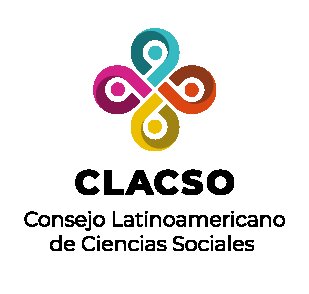Authors
Abstract
Abstract:This article, based on Goleman’s theoretical perspective, provides a foundation for understanding how the family interactions are violated by the difficulties in connective networks, and therefore forcing a review of the emotional dimension of human development. For this purpose, the text analyzes three main arguments: emotional ties, patterns of social interaction and intelligence in the connective dynamics, as the motor of the daily interaction that becomes product-producer of coexistence and of the ways to tackle the conflicts in the various family and individual crises along the life cycle. From an eco-systemic model, the authors suggest contemplating the individual as a system itself and as a key element of the family system in reciprocal feedback. This theoretical reflection is a product from the authors’
experience in their Social Work internship and the progress of the research project from the Autopoiesis research training group entitled: “Patterns of interaction, social intelligence and autonomy. Validation of a strategy aimed at confronting system to facilitate the transition to the university cycle in students of first semester of the Social Work program for the construction of social identity”.
References
De Zubiría, Miguel. (1995). Formación de valores y actitudes. Un reto de las escuelas del futuro. Santafé de Bogotá: Fondo de publicaciones Bernardo Herrera.
Duque, Aura Victoria. (2008). Protocolo de práctica: El afrontamiento. Inédito. Manizales. Universidad de Caldas.
Erickson, Eric. (1981). Identidad, juventud y crisis. Madrid: Taurus.
Gimeno, Adelina. (1999). La familia. El desafío de la diversidad. Barcelona: Ariel.
Goleman, Daniel. (1985). La psicología del autoengaño. Santafé de Bogotá: Editorial Atlántida.
__________. (1996). La inteligencia emocional. Por qué es más importante que el cociente intelectual. Buenos Aires: Javier Vergara Editor.
__________. (1998). La Inteligencia emocional en la empresa. Buenos Aires: Javier Vergara Editor.
__________. (2002). Las emociones destructivas. Barcelona: Vergara.
__________. (2006). Inteligencia Social. La nueva ciencia para mejorar las relaciones humanas. México: Planeta.
Hernández Sánchez, Marta Lucía. (2006). Proyecto: Expedición intergeneracional. Una estrategia SDUDODUHVLJQLÀFDFLyQGHORVSDWURQHVGHLQWHUDFFLyQHQORVSDGUHVGHORVHVWXGLDQWHVGHSULPHUVHPHVWUH para facilitar la transición a la vida universitaria. Inédito. Manizales. Universidad de Caldas.
Howe, David. (1997). La teoría del vínculo afectivo para la práctica del trabajo social. España: Paidós.
Musitu, Gonzalo, Román, José María, Gutiérrez, Melchor. (1985). Educación familiar y socialización de los hijos. Barcelona: Idea Books, S.A.
Sánchez Rengifo, Luz Mery. (2003). “Trabajo Social e intervención en crisis”. En: Conets,
Memorias XI Congreso Colombiano de Trabajo Social. Manizales. Universidad de Caldas-Conets.
Satir, Virginia. (1991). Nuevas relaciones humanas en el núcleo familiar. México: Pax México

 PDF (Español)
PDF (Español)
 FLIP
FLIP

























